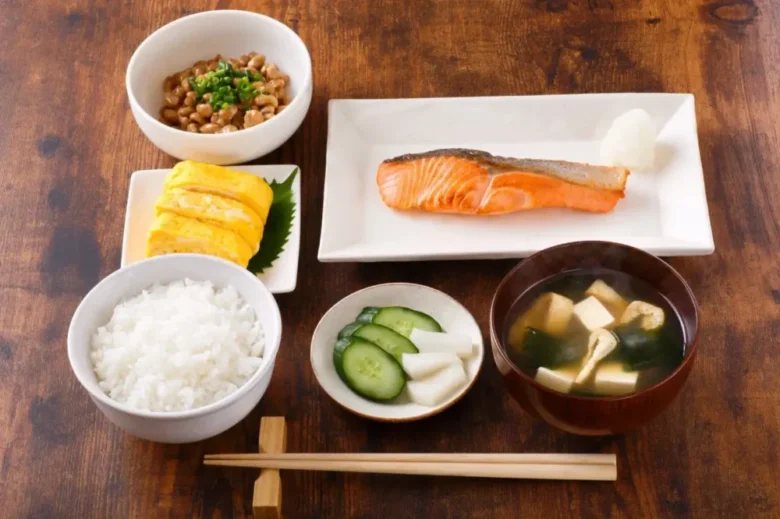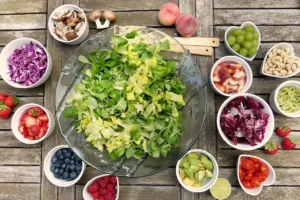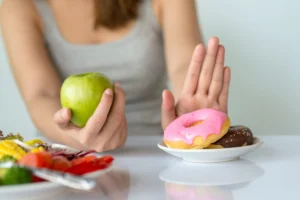Dr. Zenji Makita, a renowned Japanese diabetes specialist and medical doctor, points out in his book “Diet Techniques 2: Practical Guide”:
The idea that “eating greasy foods leads to fat accumulation” is overly simplistic. The real culprit behind increased body fat is carbohydrates (which, in the book, are referred to as sugars).
“Diet Techniques 2: Practical Guide” is the sequel to the best-selling book “Diet Techniques” and has become a highly popular scientific guide to eating in Japan, selling over 800,000 copies.
In the book, Dr. Makita addresses readers’ questions such as “What should I eat, and how can I eat healthily?” He introduces various foods that align with human DNA and provides the correct ways to consume them, helping us achieve a healthy body.
Here are 20 health tips on diet from his book:
01. Relying entirely on fruit for vitamin intake can lead to excessive sugar consumption.
Fructose, found in fruit, is more likely to turn into triglycerides than glucose, making fruit a common culprit for weight gain.
02. If you have the habit of buying sugary drinks, canned coffee, or snack foods from convenience stores, it’s time to quit.
03. Protein powder should not be consumed carelessly. Taking it “for health” can sometimes have the opposite effect.
Protein is a nutrient that builds muscles and bones. You should get protein from foods like meat, fish, eggs, and soy products, not rely on protein powders.
04. Avoid foods that lead to long-term health problems—french fries are an absolute “devil food” to avoid.
05. Limiting carbohydrate intake is the healthiest and most effective way to lose weight.
06. The culprit for weight gain is not fat, but carbohydrates.
07. If you want to be healthier, always remember: “Less than now.”
Specifically, eat less rice, bread, steamed buns, noodles, sweets, and sugary drinks.
08. Root vegetables, pumpkins, and lotus roots contain high amounts of carbohydrates, so eat them sparingly.
09. To get sufficient vitamins and minerals, reduce carbohydrate intake and increase your intake of side dishes.
10. Don’t just eat noodles—it’s better to eat them with proteins, fats, and dietary fibers.
The same goes for bread. Eating bread with proteins, fats, and dietary fibers helps control blood sugar levels.
11. Reducing carbohydrate intake and avoiding non-natural processed foods is key to good health.
The consumption of industrially processed, non-natural foods is a major cause of many diseases.
12. To develop a habit of health and longevity, spend more time at your meals. Chew more, and savor each bite carefully.
13. Drinking 100-200 grams of unsweetened “plain yogurt” a day is sufficient. There’s no need to choose “low-fat” yogurt.
14. It is recommended to eat chocolate with at least 75% cocoa content and low sugar.
15. Mushrooms are excellent health foods, and you should increase their consumption.
16. Tofu and other soy products are nearly perfect foods with very few drawbacks.
17. Fish is great for health, and this has been confirmed by research. You should alternate fish with other meats, eating more chicken, moderate amounts of pork, and beef occasionally.
18. Eating meat is better for longevity than avoiding it.
19. Drink unsweetened black coffee, but don’t overconsume it. If you’re a fan of strong coffee, it’s best to limit yourself to about three cups a day.
20. Excessive sugar intake not only leads to obesity but can also cause small pustules, wrinkles, and dark spots on the skin. For both beauty and health, it’s important to change your mindset about sugar.
Conclusion
In his book, Dr. Zenji Makita offers valuable insights into diet and health that are rooted in scientific principles and based on our genetic makeup. These 20 tips serve as practical guidelines for anyone looking to improve their health and well-being. By making small, mindful changes to your diet, such as reducing carbohydrate intake, focusing on natural foods, and adopting healthier eating habits, you can significantly improve both your physical and mental health.




